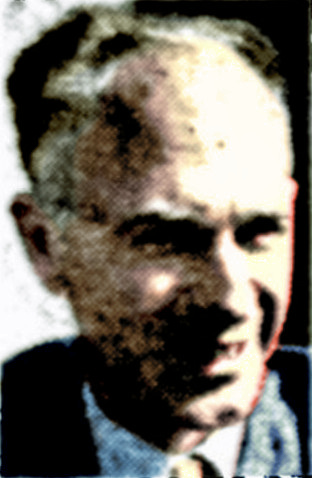
Roving Reporter
By Ernie Pyle
Oran, Algeria –
Oran, as a city, is not a bad place at all. But most of the Americans here would trade the whole layout for the worst town in the United States, and throw in a hundred dollars to boot.
That’s the way Americans are, including me. Most of us had never heard of Oran till the war started. Yet it is bigger than El Paso. It has palm-lined streets, broad sidewalks, outdoor cafés, a beautiful harbor, restaurants with soft-colored lighting, and apartments with elevators.
On the other hand, it has Arabs dressed in ragged sheets, garbage in the gutters, dogs that are shockingly gaunt, and more horse carts than autos.
Most of the Americans talk about how dirty Oran is. Which just goes to show they haven’t been around. Oran is cleaner than some of the poorer Latin cities in our own hemisphere. And at this season, it doesn’t even smell very bad.
World travelers had told me that Oran had an Oriental atmosphere, but I can’t sense it. It seems much more like a Latin city than an Oriental one.
You could compare it in many ways with El Paso if you discounted the harbor. The climate is roughly the same. Both cities are in semi-arid country. Both are dusty in the spring and very hot in summer. Both are surrounded by fertile, irrigated land that produces fruit and vegetables and grain. And if you just substitute Mexicans for Arabs, the proportions are about the same.
The population of Oran is actually mostly French, Spanish and Jewish. The Arabs are a minority. They run all the way from hideous beggars up to solemn men in long white robes and bright turbans, sitting in the most expensive cafés and sipping tall drinks. But you see many more Europeans than Arabs.
American forces fight boredom
Our troops are rather lost here, officers and men both. There aren’t the usual entertainments to be had at home and in England. Nothing much is left to drink but wine, and most of the Americans haven’t learned to drink wine with much relish.
The movies are few and pretty poor. There are no dances. There is a professional “line,” but the parents of nice girls are very cranky and won’t let the girls out.
Everybody feels a sense of rage at not being able to talk to the local people. The soldiers try hard with French but it’s not much fun. Officers stationed here at desk jobs are already itching to move onward.
Troops camped far out in the country – which the vast majority are – really are better satisfied than those in town.
Everybody is plenty busy. That is, almost everybody. There are at the moment two correspondents in Oran, and several times that many Army censors to handle our stuff. I turn in one piece a day, and the other correspondent one piece a week. The censors are so bored that when I bring my column in, the entire office staff grabs for it and reads it hungrily, everybody makes flattering remarks, and then we all go out and have a bite to eat.
For some reason, communications from here are faint, you might even say mystic. I can’t find out how my copy is transmitted. The censors themselves don’t know. We write the stuff and send it away with about the same assurance of delivery as though we’d put it in a bottle and tossed it in the Mediterranean. I’m positive I saw a small Arab boy feeding my column to his goat yesterday morning.
We have no word at all from our correspondent friends in Algiers.
U.S. supplies and men fill place
Yesterday, two correspondents arrived from Casablanca bringing the first news we’d had from out there except communiqués. They say Casablanca is a beehive but very dull, and they think they’ll like Oran better.
They say naval aviation did the best job in the original occupation at Casablanca.
Outside of the poor censors, everybody is busy here. The Army’s immense supply organization is working at fever pitch, unloading supplies and getting them started forward.
The scenes at the docks and warehouses are thrilling. It is astounding the amount of rolling stock we have here. There seems to be just as many trucks as I ever saw in America. The coastal highways are good macadam, and our trucks roar over them constantly.
Combat troops that are still bivouacked in this area continue their training, keeping constantly fit by long marches down the highways.
Day by day, the whole of North Africa grows nearer the saturation point with American soldiers, machines of war and supplies. Before long, they will be ready to spill out in a smothering flow over the enemy.
